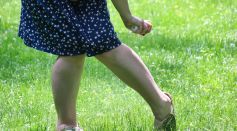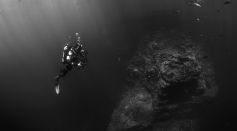ENVIRONMENT & CLIMATE

Ivindo National Park Becomes Second UNESCO World Heritage Site in Gabon, Securing International Support for Conservation
Sunken Continent Theory Explains the Origin of Iceland; Could Affect Future Fuel Claims
Invasive Insect Extermination: Study Finds Nematode Bacteria as Effective Pesticide Against Fire Ants
Scientists Tests Laws of Friction To Understand Caldera Collapse During Kilauea Volcano Eruption in 2018

Mosquitoes as Disgusting Insects: 5 Facts That Make Them Undeniably Irritating

Honeycomb Structures: Bees Keep Honey in Shapes Other Than Hexagons

Chilean Chinchorro Mummies Now Protected by the World Heritage List; Who Were They?
Fossilized Giant Vampire Bat Remains Dating Back to 100,000 Years Ago Fills Historical Gaps
Madagascar's Ancient Megafaunas Extinct Due to Introduction of Foreign Animals

Chemical Recycling Repurposes Diapers into Adhesives Removing Millions of Sodden Diaper Wastes
BeachBot: Make Way for This Beach-Cleaning Machine That Will Pick Up Cigarette Butts Using AI

Mega Sandstorm in China Momentarily Erases A Silk Road Outpost, Country Announces to Build 'Great Green Wall'

Loss of Oxygen in Oceans Detrimental to Marine Life; Scientists Show How Deoxygenation Rapidly Affects Reef Ecosystem

Mangroves in Danger: Lack of Invertebrates, Other Species That Threaten Plant Populations
Most Popular

Recycling Myths vs Facts: What Actually Gets Recycled and How to Do It Right

What Is Conservation Biology? Key Strategies to Protect Species and Habitats

Allergies Explained: What Happens in Your Body During an Allergic Reaction

Types of Pollution: Air, Water, Soil, Noise, and Their Health Effects





